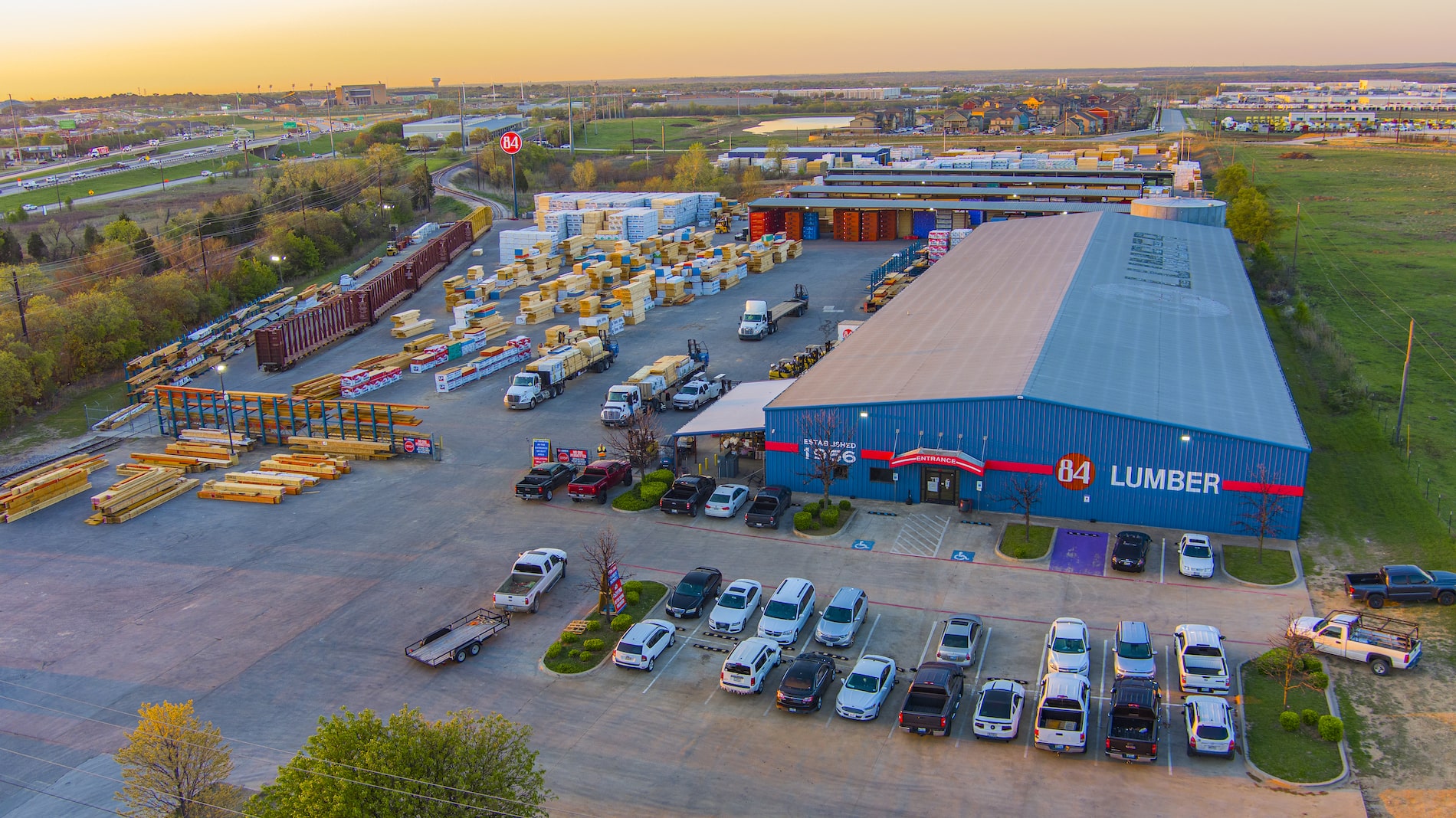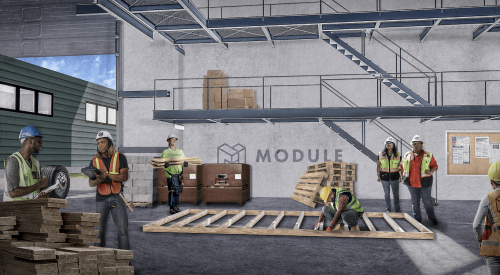
President
84 Lumber
Maggie Hardy Knox assumed leadership of Pennsylvania-based 84 Lumber from her father, company founder Joe Hardy, in 1992, becoming president of a national lumber and building materials supplier at just 26 years of age.
From the outset, she charted a new course for 84 Lumber at a time when the building products space was changing, maintaining 84’s core culture while revising its philosophy about going to market.
Today, 84 Lumber is a vertically integrated materials supplier, component manufacturer, and an installed sales and service provider for the construction of single- and multi-family homes and commercial buildings, with 250 locations and $7.5 billion in 2021 sales.
Lately, Hardy Knox’s focus has been on the chronic skilled construction labor shortage, which affects not just builders and trade contractors, but also suppliers, and has developed an approach at 84 Lumber to attract, train, and keep the best associates—and that translates to retaining customers, as well.
RELATED
- Women at WIRC Podcast: 84 Lumber's Stephanie Martin
- Labor Shortage Survey: Who's Leading? Where's the Solution?
- Disrupting Home Building: The Rise of IC Outsiders
Pro Builder: What is your assessment of the current skilled labor shortage for residential construction/production?
Maggie Hardy Knox: History has taught us that we can only control what we can control. So the focus should be on the solution, not the problem. For us, this means not only ramping up recruitment efforts, but also finding ways to make things easier on our builders and customers so they can continue doing what they do best.
PB: In your opinion, how did we get here?
MHK: 2009 to 2012 were very disruptive years. People just weren’t building, so workers went out and did other jobs instead. The housing market was slow for a few years, and then it started to come back. We all had to learn to move faster and offer more services. Housing starts have continued to rise, and many in the industry, including 84 Lumber, are growing with the demand.
PB: What do new and journeymen skilled workers want and need that the housing industry currently doesn’t provide?
MHK: Opportunity. We need to create paths for these individuals to work management positions, outside sales positions, and more, and continue to create programs to help them succeed.
In our 65-plus years in business, there are three things I always say have been tantamount to our success: our culture, our people, and our team-based competitive environment. Building a culture that nurtures the talents of younger workers, as well as our seasoned associates, to put them on the track of success, is one of the most important things that can be done to retain talent.
Over the last few years, we have expanded our training and development programs to help draw in and retain associates. Today, if someone is looking to make a career transition, whether it’s from the hospitality industry, the military, or something else, 84 Lumber doesn’t require any prior experience. We can train them on everything they need to know, and our “promote from within” culture provides growth opportunities that can’t be found elsewhere.
I also believe it’s important for leaders in the industry to share their experiences and to mentor younger associates. It’s up to us to help put associates on a path to becoming future leaders within the company, and the best way to do that is to simply get out there and talk to your people about their needs and their goals.
PB: What is your vision of the future of housing production, as it relates to skilled labor?
MHK: The trades are becoming increasingly appealing to young people. I believe that by providing young workers with opportunities to gain experience and succeed, we are going to continue attracting new people to the industry.
In the meantime, we are expanding our manufacturing capabilities and working to provide more services to builders so they don’t need as much labor in the field.
Over the last four years, we’ve dedicated a lot of effort to hiring, manufacturing, installed services, and growing our stores so we can help builders continue to build homes.
PB: How can home builders create and sustain a culture and business strategy of training and advancement opportunities for promising young and top-tier employees?
MHK: You must be committed to hiring good people and giving them opportunities to succeed. We are committed to training the common person to do uncommon things in our culture.
At 84 Lumber, we have an on-site training center dedicated to training and development of our associates. We hold Lumber Camps, Sales Camps, Leadership Camps, and Manager Camps, to name just a few. We will teach associates about the construction and building materials industry and store operations. We also have online, self-paced learning tools to help with product knowledge and learning different roles.
We have received positive feedback on our training programs, and we believe it’s an important piece of the puzzle for attracting and retaining top-tier associates.
RELATED
- How Should Construction Hiring Managers Connect With the Next Generation?
- After Recruiting and Hiring, Put in the Work to Keep Employees
- How to Scale Hiring and Create a More Diverse Workforce in Construction
PB: What are some "easy" tips for recruiting, training, and growing employees (especially young workers new to the industry)?
MHK: We are always testing out new initiatives for reaching potential hires. Over the last few years, we’ve hosted hiring events, run social media ads, partnered with local schools, and more. We’ve expanded our recruitment teams and we’ve made a special effort to recruit military veterans, women, and minorities.
Our easiest tip is to just talk to your people. We encourage our leaders, from store managers to divisional vice presidents, to commit to new 84 Lumber associates. Something as simple as creating a space for associates to be able to talk about their futures and make sure they don’t feel stuck is very important for retaining talent.
PB: What is your opinion about production builders vertically integrating skilled framing and other labor into their operations (versus subcontracting or installed sales)?
MHK: We do work with some builders that are vertically integrated. At the end of the day, becoming vertically integrated is a big change, and you must be 100% committed to it in order to get there. It’s a big job, and it starts with building one factory at a time and building up to that cadence.
For those that don’t have the capacity to do this, 84 Lumber can fill in the blanks for you through our manufacturing facilities. We want to provide these services so builders don’t have to worry about it.
We are continually expanding our installed sales infrastructure, adding experienced project managers and sales professionals, and expanding an entire department dedicated to meeting the demands and ensuring the success of our customers.













